
Home » Travel Guides » Niger » 15 Best Places to Visit in Niger

15 Best Places to Visit in Niger
Before we extoll its beauties, let’s get the gritty side of Niger out of the way. Beset by military juntas and tribal uprisings and other terrorist groups now marauding through the states of Central Africa, Niger has never been and still isn’t the safest of places to explore. Travelers under its spell should bide their time, check FCO warnings and wait; with luck, one day, this great cut-out of the Sahel and Sahara will once more open its doors and borders.
Until then we can only pine. So, pine we shall. Pine for the undulating dunes and the shifting sea of sands that is the Ténéré Desert. Pine for the mud-brick mosques of towns like Agadez. Pine for the winding alleyways of Zinder; the energetic markets of Balleyara, and for the old regal homes of onetime monarchic Dosso.
Lets explore the best places to visit in Niger :

A maze of tight-knit lanes and hidden streets weaves and winds to form the hard-to-navigate heart of Zinder.
Meanwhile, the Sultan’s Palace towers over the town with its great adobe architectural achievements.
And that’s not even mentioning the bustling bazaar, which stretches as far as the eye can see – it’s easy to believe it was once one of the busiest camel caravan stops on the trans-Saharan route! Yep, Zinder comes top for many reasons: its rich history of French rule, tribal culture and trading; its mercantile energy; its sheer, raw African beauty.
In short: not to be missed.

More than 1.3 million people live, work and play in the capital city of Niamey, making it the veritable human heart of Niger.
The city straddles the courses of the Niger River in the south-west, and bustles with fantastic open air markets, and a surprisingly heady nightlife scene after dark (check out the beer joints around Yantala Ancien – and remember the strict drinking laws as you do!). International eateries touting pizzas and pastas mix with the spicy creations of the African kitchen too, while the bulbous blue domes of the Grand Mosque are simply not to be missed!

Boasting nearly 1,000 years of history and steeped in tales of Sahelian camel caravans, the Ottomans (believe it or not!), and the old Songhai imperialists, enthralling Agadez certainly has a story to tell.
The town is found smack bang in the heart of the country as a whole, surrounded by the sun-scorched dunes of the Sahara Desert and the endless yellow of the sand sea.
It’s formed from a grid of narrow streets and adobe, mud-brick homes.
The centerpiece has to be the earthen minaret of the central mosque, which mimics the great landmarks of the desert towns of Mali to the west.
4. W National Park

Unquestionably the most famous national park in all of Niger, the W National Park has also attained that coveted UNESCO World Heritage Site tag, which it was awarded on account of its unique display of transition habitats between the savannah and the West African woods.
Just one fragment of the huge W Transborder Park that crosses into Burkina Faso and Benin, it’s made up primarily of dusty bushland.
And the animals? Well, suffice to say you should get the camera ready for a medley of baboons and African buffalo, giraffes, leopards, lions and more!

After just three hours on the rumbling dust roads from the capital you could find yourself alighting in the charming river town of Ayorou, one of the top draws of Southwestern Niger.
Known for the surrounding riparian habitats that encompass the settlement, Ayorou itself sits on its very own island, where the mosque and marketplaces both make their home too.
In fact, the bazaar is a great place to start your travels here, searching through the curious folk remedies and sampling simple Sahel street food, all before breaking out to see the hippos splashing and lazing in the muddy waters nearby.
6. Abaaba National Park
Established back in 1987 for the sole purpose of protecting the endangered animals that make this territory their home, the Abaaba National Park has remained firmly off the radar for nature-loving travelers making their way through this land on the join of the Sahel and Sahara.
That doesn’t mean it’s not worth the trip though.
There are forests of low-lying acacia trees and semi-savannah plains aplenty, all crisscrossed by herds of bucks and elephants.
The territory is also important on the conservation front, as one of the last remaining habitats of the uber-rare black rhino.

The gateway to the aforementioned Abaaba National Park and the easternmost settlement in the whole of Niger, the town of Nguigmi buts up the banks of cross-border Lake Chad with its humble air strip and pretty city mosque.
The whole place oozes the character you’d expect of a far-flung desert town, with camel caravans coming and going every day of the year.
The small settlement is also home to the tribal groups of the Kanuri people, the Daza and the Wodaabe-Fulani – many of whom are some of the few remaining examples of Niger’s fascinating pastoral communities.

For most travelers, Maradi – the third-largest city in the whole country – will be just an administrative stop; to switch transports or stock up before heading out to the historic richness of Zinder, or to the Nigerian border to the south.
However, those who linger will discover a town that hardly feels like any other urban destination in the nation; a place of (relative) economic prosperity and buzzing markets, oozing confidence and panache.
Head down to the Grand Marché to haggle your way through shamanic jewelry and magic charms like lizard tails and the like.
There’s also the awesome palatial home of the tribal leader: the Maradi palace, rising in grand styles on one of the central squares.

Traditionally the place where the Tuareg tribes of the northern desert lands fused with the Fulani folk of the southern reaches of the country, the town of Tahoua is where two of the major cultural identities in Niger can be seen mingling, mixing, and – most importantly of all – trading their wares.
The market here really does take center stage, so be sure to head down and see its buzzing stalls and the endless wealth of carved totems and witch doctor’s trinkets there.
The place is also known as one of the country’s phosphate mining hubs – so don’t be surprised if there’s a clutch of unattractive industry too.

Bulbous pink pomegranates, blood-red and orange citrus fruits, and bountiful clusters of watermelons are might not what you’d expect to see this deep in the heart of the Sahara Desert, but the far-flung town of Timia tells a different story.
Fed by an oasis for the entire year, the little clusters of low-rise cottages is surrounded by verdant fields of orchards and agricultural ground.
They stretch along the length of the valleys that carve through the heart of the Air Mountains, popping up here and there in a bloom of date palms, or a crash of green grasses.
Travel to Timia is intrepid, and promises fulfilling encounters with the desert nomads and villagers of the region.

Kouré is the place to go giraffe spotting.
Encompassed by hot and sandy Sahelian landscapes, the tiny town has its claim to fame in the long-necked creatures that stalk its backcountry.
They are said to be the last remaining complete giraffe herd in all of West Africa; an honor which continues to draw wide-eyed folk over the rumbling pathways from the capital (more than 60 kilometers to the north-west) by the bucket load.
Local guides can help you spot the rare creatures, but be prepared, because you may need to walk some before they reveal themselves!

Dosso, ancient Dosso, is one of the few palpable remaining relics of the pre-colonial era of Niger.
The onetime epicenter of the Dosso Kingdom, the state that commanded the loyalty of tribes in the south-west corner of the country before the coming of the Europeans, it’s a place alive with heritage and traditions.
Today the town is a fusion of the new and old, with low-rise concrete buildings mixing with ramshackle yurts.
The marketplace still bustles with life too, as groaning camels move in and out of the dusty streets all around.
13. Balleyara

A trip to the famous animal bazaar of Balleyara Market is a glimpse at the traditional lifestyles of central Africa.
A fusion of tribes and peoples, it draws traders from Mali, Burkina Faso and all over the far-flung reaches of greater Niger.
The result is a crash of folksy stalls and emporiums touting curious pieces of whittled art and good luck charms.
The other side – and by far the largest – of the market is the animal area, which means seeing everything from bull herds to camels changing hands.
And the really good news? Balleyara can be reached in just two hours from the capital at Niamey.

If you can get past the overtly industrial character of Arlit, then you might just appreciate the town for the earthy and folksy place that it is.
Deep in the wild Agadez Region, it’s one of the best gateways to the vast dunes of the Ténéré Desert (although, admittedly, Agadez is better). The homes are crumbling, sunbaked bricks of mud; the people are tired uranium miners with leather-like faces, and you can pretty much be certain that very few – if any – travelers have ever lingered here for very long before you.

Diffa is a difficult place to pin down.
At times it’s been a tenacious hotbed for military uprisings against the Niger government; at others – like today – it’s a receptacle for the thousands of refugees that come flocking across the Nigerian border in fear of militant groups and extremists.
Unfortunately, those more recent developments have made the place pretty unsafe for modern travelers (even by Niger’s standards), so it looks like we’ll have to wait to explore the peaks and troughs of the dust-caked Diffa Region – the home of wandering waterbucks and rare leopards and more.
15 Best Places to Visit in Niger:
- W National Park
- Abaaba National Park
Must-see attractions in Niger

Musée National du Niger
The sprawling Musée National du Niger is one of West Africa's standouts. Numerous themed pavilions, each tipping their hat to Hausa architecture, give…
Petit Marché
The Petit Marché is smack-dab in the centre of town and merits a visit. Self-caterers can go crazy, squeezing fruit and veg to their hearts content in…
More destinations you need to see
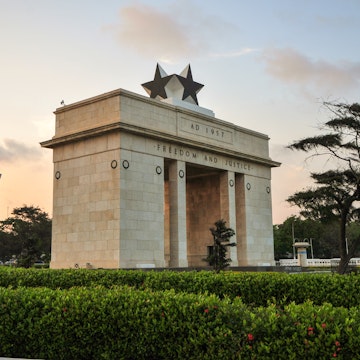
- 3 Other destinations
- 4.1 History
- 4.2 Economy
- 6.2 By plane
- 7.1 By road
- 7.3 Rent a car
- 7.5 By rail
- 10.3 Shopping
- 15 Stay safe
- 16 Stay healthy
Niger ( Nee-ZHAIR , rarely NY-jer ) is a large, arid, landlocked country situated in the Sahel . Formerly a French colony, Niger is one of the poorest countries in the world and is largely agrarian. Negative things aside, Nigeriens in general are quite friendly and down-to earth, and you can expect to come across numerous curious faces during your stay. Chances are, you may be the first person from your country they have ever met.
Tourism in this large country is limited, but travel allows you to explore an isolated nation tucked away from the rest of the world.
Regions [ edit ]

Cities [ edit ]
- 13.515 2.1175 1 Niamey — Although both the administrative capital and commercial centre, possibly the least crowded and hectic capital in West Africa
- 16.972222 7.990833 2 Agadez — A trade hub along trans-Saharan trade routes for over five centuries, home to a magnificent palace and several mosques and a gateway to the nearby Air Mountains
- 14.7346 0.9201 3 Ayorou — Along picturesque section of the River Niger with one of Niger's best markets, and a starting point for river trips to Gaya
- Diffa — Peul town between shifting sand dunes and disappearing swampland which serves as the gateway to SE Niger & Lake Chad
- Dosso — has a small museum, colourful market and an even more colourful chief's palace
- 13.5 7.1 4 Maradi — Centre of agriculture (especially peanuts), home to a colourful chief's palace, and near seasonal rivers/floodplains which have caused interesting land formations to the south
- Tahoua — Stop en route to Agadez
- 13.8 8.983333 5 Zinder — The cultural capital of Niger, this Peul-Hausa city has perhaps the most colourful craft markets (pottery & tanning are local specialities) as well as a noteworthy regional museum and sultan's palace
Other destinations [ edit ]
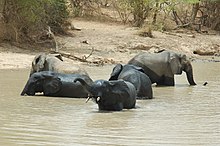
- 12 2.5 1 W National Park — magnificent National Park, easiest accessed from Niamey
- 13.3106 2.576 2 Koure — See the last herd of giraffes in West Africa
- Balleyara Market — Two hours from Niamey , one of West Africa's largest animal markets, plus a colourful array of other traditional market and artisan wares (Sundays)
- 14.7346 0.9201 3 Ayorou — A river-side town three hours from Niamey with a colorful, laid-back Sunday market as well as pirougue tours to see the hippos and islands
- Bilma — an oasis situated in the northeast
- Boubon — Bar/restaurant and huts to rent nightly on an island in the Niger River
- Termit & Tin Toumma National Nature and Cultural Reserve — one of Africa's largest reserves (twice as large as Costa Rica), the park protects several animals (including the critically endangered addax, Dama gazelle, & desert cheetah), protects the nomadic culture, and features lots of scenic desert landscape. Established in 2012, it will take a few years for guides, ecotours, and facilities to become available.
- 19.4 9.7 4 Air and Ténéré Natural Reserve — a natural reserve in the desert, inscribed on the UNESCO World Heritage list
Understand [ edit ]
History [ edit ].
Not until 1993, 35 years after independence from France, did Niger hold its first free and open elections. A 1995 peace accord ended a five-year Tuareg insurgency in the north. Coups in 1996 and 1999 were followed by the creation of a National Reconciliation Council that effected a transition to civilian rule by December 1999. In 2009, a coup d'état toppled the elected-turned-dictator government, and returned Niger to an electoral democracy. After the transition to democracy, Niger became a strong ally of Western states like the United States and France, both of which established military bases and military cooperation with the Nigerien armed forces. Niger has played an outsized role in the global anti-terror movement, serving as a base of operations for the fight against insurgents in the Sahel and Saharan regions. However, this has led to an increase in terrorist attacks in and around Niger itself by militants that cross the porous borders from Mali and Burkina Faso.
Although Niger has huge economic potential, Niger has never particularly been a wealthy country and the country has a myriad of social, economic, and political problems. Most people live in poverty and work as farmers. Niger is also the country with the youngest average population.
Economy [ edit ]

Niger's economy centers on subsistence agriculture, animal husbandry, reexport trade, and increasingly less on uranium, because of declining world demand. The 50% devaluation of the West African franc in January 1994 boosted exports of livestock, cowpeas, onions, and the products of Niger's small cotton industry. The government relies on bilateral and multilateral aid — which was suspended following the April 1999 coup d'état — for operating expenses and public investment. In 2000-01, the World Bank approved a structural adjustment loan of $105 million to help support fiscal reforms. However, reforms could prove difficult given the government's bleak financial situation. The IMF approved a $73 million poverty reduction and growth facility for Niger in 2000 and announced $115 million in debt relief under the Heavily Indebted Poor Countries (HIPC) initiative. Niger is the world's second poorest country and has the world's lowest standard of living.
People [ edit ]
Niger has a population of over 25 million. The Hausa (Zarma and Songhai) make up the largest ethnic groups of Niger.
Over 20% of Nigeriens are made up of nomadic and livestock raising tribes, including Fulani, Tuareg, Wodaabe, Kanuri, Arabs and Toubou.
Talk [ edit ]
The official language in Niger is French , although very few people speak it outside Niamey and even there do not expect a high level conversation with the traders at the markets. The local languages include Djerma (spoken mainly in Niamey and the bordering Tillaberi and Dosso regions), Hausa, Fulfulde and Tamashek (spoken by the Tuaregs in the north), and Kanuri (spoken by Beri Beri). English is of no use outside the American cultural center and a few big hotels in Niamey. However, you will find English-speakers in border towns along the Nigerian border, such as Birni N Konni and Maradi. These people are usually from Nigeria to the south and in general want something from you. As friendly as they may be, always listen to a professional guide over anyone that speaks some English.
If you learn about 20 phrases in a local language, you will gain respect in a heartbeat. Simply greeting people in their local tongue will make your trip there smoother than you would have ever thought possible.

Top essential Zarma/Djerma phrases :
- Fofo : hello
- Mate ni go? (mah-tay nee go?): How are you?
- Samay (sawm-eye): Fine
- Man no...? Where is...?
- Ay ga ba... (Eye gah bah): I want...
- Wo-ne: That one
- Ay mana faham (eye) MAH fah-ham : I don't understand.
- KaLA-tonton : Goodbye
Top essential Hausa phrases :
- Sannu : Hello
- Me sunanka : What is your name?
- Kana LA-hiya : How are you?
- LA-hiya LO : It's all good.
- Na GO-day : Thank you
- Sai ANjima : Goodbye
- Na GO-day, Na KO-shi : Thank you, I am full. (Polite response when offered food you are afraid to eat)
Some Arabic words are also common :
- salam-u-laikum , which roughly means, "peace be with you," and is used in Niger when you enter a house or greet someone
- al hamdallaye , which means to a Nigerien "Bless it, it's finished." It can also mean "no thank you." The latter can also get you out of having to sample possibly dirty food, or from eating at someone's home until your stomach explodes.
- In-shah-allah , which means "God willing." For example, "I'll come to visit your family in-shah-allah."
Get in [ edit ]
Visas [ edit ].
Visas are required by all nationals except:
- Nationals of the African countries of Benin, Burkina Faso, Cape Verde, Central African Republic, Chad, Côte d’Ivoire, The Gambia, Ghana, Guinea, Guinea-Bissau, Liberia, Mali, Mauritania, Morocco, Nigeria, Rwanda, Senegal, Sierra Leone, Togo and Tunisia, as well as those of Hong Kong
- Alien residents holding a valid Permis de Séjour or Visa de Séjour
- Transit passengers continuing their journey within 24 hours who do not leave the airport
An International Vaccination Certificate for Yellow fever is mandatory, but Cholera vaccination certification is required only if travelling from a neighbouring country where an outbreak of the disease has been reported.
- At the London Niger consulate , single entry visas are GBP120, double GBP220 and a multiple entry visa valid for one year costs GBP260.
- Overland travellers can acquire a visa from the consulate in Parakou, Bénin. A hotel address in Niger is required and the consul will issue a 30-day visa for 22,500 CFA (€34) on the spot (January 2019).
- The Nigerien embassy in Abuja, Nigeria offers up to 90 days, multiple-entry visa for NGN 20,000 (€39), 180 days is also available for a higher price. Requirements are two passport photos and a reference in Niger. They will send your application to headquarters in Niamey, which usually takes a long time to reply. But if you explain that you are short on time they will often be happy to give you the visa anyway (November 2016).
- A 30-day visa from the Niger Embassy in Ouagadougou Burkina Faso cost CFA 25,000 =£34.
By plane [ edit ]
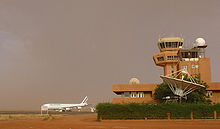
There is one international airport (Aéroport International Diori Hamani de Niamey) in Niamey .
As of August 2017, there were flights from West and North African capitals, Istanbul , and Paris .
- Air Algerie flies from Algiers a few times a week (sometimes including a stopover in Ouagadougou ).
- Asky Airlines and Air Burkina connect Niamey with Ouagadougou
- Air Côte d'Ivoire flies daily from Abidjan
- Ethiopian Airlines flies from Addis Ababa a few times a week
- Afriquiyah connects Niamey with Tripoli (Mitiga) a few time a week
- Royal Air Maroc flies almost daily from Casablanca
- Asky Airlines and Air France fly from Lomé
- Turkish Airlines offer flights from Istanbul (IST) via Bamako
- Tunisair connect Niamey to Tunis
There are a few private companies and one mission aviation group (SIMAir) that do charter flights from Niamey in small planes.
By car [ edit ]
Travellers can get to Niger overland by roads from Mali, Burkina Faso, Benin and Nigeria.
Some adventurous souls still cross the Sahara from the north (Algeria), but that area is not secure.
As with most of the other Saharan and Sahelian states, the borders of Niger are truly just "lines in the sand" and thus are extremely porous. With the dangerous security situations in neighboring states (c.f. Mali, Burkina Faso, Chad, northern Nigeria, and Libya), conflict can spill over into Niger and there is a general sense of lawlessness around borders, especially in the Saharan part of the country. It is probably safe to say that, as of 2023, no land border should be considered safe to cross.
By bus [ edit ]
There are a number of private companies offering bus services from Niger to neighbouring countries and even as far as Dakar and Nouakchott (e.g. Rimbo Transport Voyageurs or SONEF). They are daily services to Lomé and Cotonou (stopping at Parakou and some towns on the road), as well as Abidjan, Bamako, Dakar, Nouakchott (all through Ouagadougou). The service to Gao in Mali was suspended due to security reasons. Tickets can be bought on at the respective companies or a sales office.
Along the Nigerian border there are local minibuses and taxis which connect Maradi and Zinder with Katsina and Kano. Normally you do not have to change vehicle at the border.
Get around [ edit ]

By road [ edit ]
Of the 19,000 km of highways, around 4,000 km is paved (as of 2010) and efforts are being made to improve some of the sections that have previously been endlessly under repair. You can travel from Ouagadougou in Burkina Faso all the way to Diffa, near Lake Chad on roads that are in decent to tolerable condition. The road from Niamey to "Park W" in the south is paved. The Zinder-Agadez route is being repaved after being in severe disrepair for years. The Birni Nkonni-Agadez-Arlit road is in poor shape.
The country has 27 airports/landing strips, 9 of which have paved runways.
From mid-December to March the Niger River is navigable for about 300 km, from Niamey to Gaya on the Benin border.
Taxis in Niamey charge about CFA 200 if the distance isn't too long, or CFA 400 for going almost across the city. At the airport in Niamey there is a taxi monopoly and the lowest you'll get a taxi for is CFA 3,000 , and that's if you haggle a lot. However, if you walk south from the airport you'll hit a main road and for CFA 100-150 you can get a ride from a beat up van to the Grand Marché (Main Market), luggage included.
The Nigerien government operates a bus service along the major routes of the country. While taking cars is exciting and interesting, they are dangerous, extremely hot, and more expensive. Plus, they are forced to pull over after midnight due to banditry. Because these cars often only leave in the evening, it can take several days to travel a relatively short distance. The large buses are brand new Mercedes buses and they carry a soldier at night so they may drive all night long. In addition, due to their large size, they can skim over potholes that would destroy the smaller vans.
Rent a car [ edit ]
There is almost no possibility to rent a car in the usual sense, although in 2005 a Hertz franchise came to Niamey and rents Toyota RAV4s. Also, you can rent a full-size "cat-cat" (4x4 from the French quatre-quatre ) with a driver/guide, but in most cases you will have to arrange with companies that organise expeditions.
- Tidene Expeditions , BP 270 Agadez, +227 440568, fax: +227 440 578
By air [ edit ]
Niger Airlines operates flights between Niamey (NIM), Zinder (ZDR), Agadez (AJY), and Diffa (DZRF) as of Mar 2020.
By rail [ edit ]
A railway line exists between Niamey and Dosso, but as of 2021 there are no trains operating.
See [ edit ]

- Aïr Mountains
- Ténéré Desert
- Parque Nacional Du W Du Niger
Do [ edit ]
- Watch the observance of Guérewol, an annual courtship ritual amongst the Wodaabe peoples.
Buy [ edit ]
Money [ edit ].
The currency of the country is the West African CFA franc , denoted CFA (ISO currency code: XOF ). It's also used by seven other West African countries. It is interchangeable at par with the Central African CFA franc (XAF), which is used by six countries. Both currencies are fixed at a rate of 1 euro = 655.957 CFA francs.
US dollars and other foreign currency are not accepted in daily transactions, only to exchange into local money via a bank or black market. Exception: near the border of Nigeria, the devaluing Nigerian currency naira is accepted.
ATMs [ edit ]
Ecobank take Mastercard and Visa card at their ATMs in Niger.
Shopping [ edit ]
Bargaining and haggling is essential and expected. It's best to have a low price and a maximum price in mind before entering into a negotiation. If the price is higher than you want, just say thanks and walk away: if you were offering a fair price you will be called back. If you were offering too low a price, you won't be called back, but you can always go back later and offer more.
Nigerien artisan specialities include:
- intricately imprinted leather boxes (ranging from small 5-cm boxes to full-size trunks)
- other leather goods
- silver jewellery
- colourful hand-woven wedding blankets
- coloured straw mats (locally made)
- fabric (only the Enitex brand is made in Niger, but there are many other kinds that are also good)
See the Niamey section and the Balleyara section for sample prices of these goods and where to find them.
Eat [ edit ]
Local, traditional food includes:
- a dense millet porridge with an okra sauce, a pepper sauce, a tomato sauce, or a squash sauce on top, sometimes with veggies and a couple chunks of meat
- rice with the above sauces
- mushy macaroni pasta with an oily red sauce
- rice & beans
- corn cous-cous mixed with moringa leaves, black-eyed peas, and sauce (called dumbou in Djera/Zarma, and only available in Djerma/Zarma regions)

Availability varies widely by region, but visitors may wish to try the following delicious specialities, usually available as street food:
- dumbou (see above)
- kilishi : beef jerkey that comes in three flavours: regular, peanut-spiced, and hot-pepper-spiced
- masa : delicious sourdough pancakes eaten with a peanut/hot pepper/ginger spice mix or a brown sauce
- fari masa : fried dough balls served with either a squash/tomato salsa or sugar
- chichena : like fari masa above, but made from bean flour instead of wheat flour
- koudagou (Djerma/Zarma): fried sweet potato chunks with sauce
Less exotic but also tasty:
- brochettes — meat kebabs made from either beef, lamb or goat
- omelet sandwiches
- mangoes: if in season, they are bigger and juicier than any available in the western world
- yoghurt: pasteurized, sweet, and available wherever there is a fridge
- fried fish sandwiches
- ground beef sandwiches
- plates of garlicky green beans or peas (usually in bars and restaurants)
Be careful of the salads — even in the city, they're usually not OK for western travellers.
Drink [ edit ]
- Drink plenty of filtered or bottled water . You will get dehydrated during your trip to Niger at one point. At times it can be hard to find bottled water, but ask for "Purewater" (pronounced pure-wata ) that comes in sealed plastic bags for usually CFA 25 (CFA 50 in some hard-to-reach places). You will also need to replenish your salts more frequently than you are accustomed.
Keep in mind that drinking alcohol is generally forbidden in Muslim culture , so take extra care to keep drunken, inappropriate behaviour behind closed doors and out of the public eye.
The national beer is called, appropriately, Biere Niger. The only other locally produced beer is a franchise of the French West-African Flag brewery. While taste is in the eye of the beerholder, Biere Niger is decent. Both are brewed in the same tank from the same ingredients with the slightest variation on how much reconstituted malt they put in each batch. All other beer, boxed wine, and hard liquor is imported.
In rare pockets of the capital you can find millet beer homebrew, brewed by Burkinabe immigrants. This is drunk out of calabash gourd bowls. Some compare the taste to a dry, unsweetened cider. See the Niamey section for directions.
Locally-made non-alcoholic drinks are delicious. Safety depends on the water quality: generally OK in the capital and NOT OK in rural areas. They are either sold by women out of their houses (ask around), by young girls from trays on their heads, or by young boys pushing around coolers. These drinks include:
- lemu-hari : a sweet lemony-gingery drink
- bisap : a dark red kool-aid-type drink made from hibiscus leaves
- apollo : a thick, pinkish-brownish drink made from the baobab fruit
- degue : sweet yoghurt with small millet balls (like tapioca)
To drink, you bite the corner off the bag.
Learn [ edit ]
There is a dearth of educational opportunities in Niger. Illiteracy is a huge problem in Niger and most Nigeriens are unable to get an education.
This all is enough to say that the educational scene of the country is unlikely to be attractive to most people reading Wikivoyage.
Work [ edit ]
Working in Niger can be a rewarding experience, but it is important to be aware of the potential risks involved. Security is a major concern and it is important to take precautions when working in the country.
Niger's biggest export happens to be people leaving Niger. Because the country is so poor, many Nigeriens move abroad in search of better opportunities.
Stay safe [ edit ]
Niger is politically unstable and lawlessness is widespread. The latest coup d'état in early 2010 increased the unstable situation and every traveller should follow independent news closely and stay in contact with their embassy. Vicious and sadistic Al-Qaeda and Boko Haram members are present in Niger and have kidnapped and killed many, so it is essential to know the off-limit regions and avoid them.
In the region north of Agadez, there have been many carjackings, kidnappings and robberies in the past sixteen or so years. The problems continue, and tourists should consider the area essentially lawless. You should not venture beyond Agadez even if you have a guide and a 4x4 vehicle unless you seriously know what you are doing. The roads past this point are of terrible quality and bandits are abundant.
Avoid driving late at night in a private vehicle. Occasionally armed robbers will operate near the town of Galmi (central Niger) and around Dosso-Doutchi (in western Niger), as well as on the road to Gao, Mali in the Tillabery region. Normally, there are police checkpoints on the main highways which limit criminal activities during the day.
The main annoyances you are likely to meet are young boys shouting "Anasara", which means 'foreigner' in most local languages, derived from the Arabic word. You will also be asked for a 'cadeau' pretty much every time you see a person outside your hotel. The word is French for 'gift,' and it is best not to perpetuate the misery this word causes to foreigners working in the country.
Niamey is safer. If you stay away from markets after dark, use taxis and are extra careful to avoid where the streets cross ravines, you shouldn't run into any problems. In markets there is a risk of pickpockets or handbag straps being cut but you are more likely to lose money by haggling poorly and in French.
Carrying a backpack and camera, looking like a tourist, and especially being white, will definitely draw some unwanted attention. Most of the attention is from people who try to get your money legally, either by selling you a toothbrush or by begging, but there are always a few less honest people.
Stay healthy [ edit ]
The Centers for Disease Control is an excellent resource for authoritative advice on health issues for travellers to Niger.
Drink lots and lots of water while in Niger because the dry heat will dehydrate you, and you may not realise. It is the best preventative step you can take. Bottled water or water sealed in a bag (called pure-wata ) is available in most of the cities but in a pinch, city tap water is reported to be well-chlorinated. Be particularly wary of well water, stream water, and rural water.
Replenish your salts as well as liquids.
Wear loose conservative clothes, big hats, and lots of sunscreen. If in doubt, wear what the locals wear.
Malaria , including encephaletic malaria, is a problem, and is chloroquine resistant in Niger [dead link] . Take your prophylaxes, use heavy-duty insect repellent (DEET is best, though nasty), and consider carrying a mosquito net to sleep under.
Giardia and amoebic dysentery are common. Be wary of any roadside food, unless you buy it hot off the grill. Even items fried in oil could make you sick if the oil has been heavily used and is old. Best to avoid salads and uncooked veggies. Also, never drink unfiltered water (including ice).
Schistosomiasis is present in most water bodies in Niger, so travellers should avoid going in the water everywhere — except chlorinated swimming pools.
In case you were unable to stay healthy, the Clinique Pasteur (situated in front of the Lycée Fontaine) has clean facilities, sterile needles, and competent, sympathetic doctors. The Clinique Gamkalley and many other clinics are around, however, you may need to watch out for dirty needles, over-prescription and aggressive staff.
Respect [ edit ]
Visitors are treated as kings in Niger (there is a Koranic proverb to that effect), so be careful not to abuse the hospitality you will be shown. For the most part, try to accept all the small tokens and gestures (cokes, tea, small gifts, etc.) that you are offered. It isn't good to refuse too much, and don't think "these people are too poor to give me these things". That is offensive as taking good care of guests is a point of honour and gives people great pleasure.
Subjects (politics, religion, family) that are considered private in other parts of the world are discussed openly and freely in Niger.
When speaking to Nigeriens, make direct eye contact and try not to raise your voice.
Nigeriens are well aware that their country has a lot of issues and most Nigeriens are dissatisfied, angry and frustrated with their government. There's nothing wrong with discussing politics so long as you approach the subject with respect and caution.
In the working world, money is one of the most important motivational factors. Given the extremely poor state of the Nigerien economy, many Nigeriens strive to make a lot of money to escape a life of hardship. This sadly is also one of the reasons why fraud and scams are common in the country.
Friendships and relationships are taken seriously in Niger. If someone does something for you, you're expected to return the favour. Not doing so is rude.
Dress conservatively, which means no shorts, no skirts above the knees, and no tank tops. For women, dressing revealingly can be seen as very offensive, even in Niamey. Also, dress nicely, as clothes determine how well you are treated back.
Islam is the dominant religion in the country and is practiced by virtually everyone. Ramadan is strictly observed. This being said, Niger is a secular state and the form of Islam practiced by the population is, by a long chalk, liberal. Niger is a rare example of religious tolerance; there are no sectarian tensions whatsoever. You're unlikely to offend a Nigerien by discussing religion — it's easy to talk about it openly.
Always ask people, especially camel drivers, market sellers, and the elderly, before taking a photograph. Many Nigeriens still find it offensive.
Slavery is still relatively common in the central areas, away from the towns. You can generally spot slaves by the unadorned, solid ankle bracelets on both feet, which look like manacles and may well serve that purpose. Unless you feel particularly brave, discussion of the subject with either victims or perpetrators is probably best avoided.
Connect [ edit ]
See the Friends of Niger website for discussion boards where you can ask questions before you go to Niger and maybe get some Nigeriens or others assist.
- Has custom banner
- Has warning box
- Has map markers
- City listing with no coordinates
- Articles with dead external links
- Outline countries
- Outline articles
- Country articles
- Has Geo parameter
- All destination articles
- Pages with maps
Navigation menu
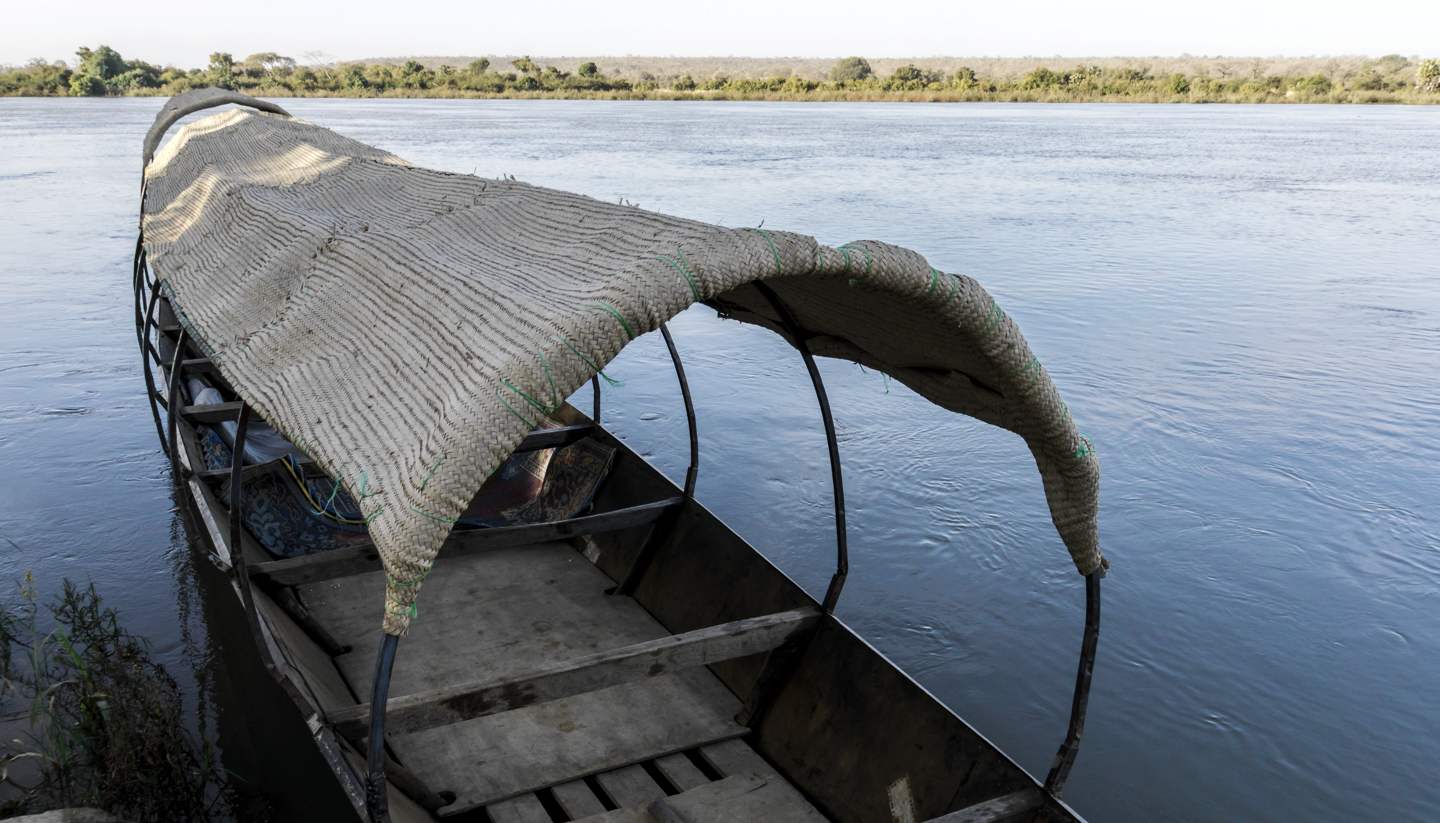
Introducing Niger
- About Niger
- Images of Niger
- History, language & culture
- Weather & geography
- Doing business & staying in touch
Plan your trip
- Travel to Niger
- Where to stay
While you’re there
- Things to see & do
- Shopping & nightlife
- Food & drink
- Getting around
Before you go
- Passport & visa
- Public Holidays
- Money & duty free
Book your flights
Things to see and do in Niger
Attractions in niger, buy a camel at ayorou market.
Trawl the animal market in Ayourou, an ancient trading station located on an island in the Niger River, close to the Malian border. While in the region, use the town of Tillabéri as a jumping off point for reaching W National Park, where you should keep your eyes peeled for the endangered West African giraffe, which clings on in the park.
Catch a tribal festival
Celebrate the end of the rainy season with the Peulh people, who mark the change in weather with a lively knees up. Alternatively, witness the Cure Salée at Ingall, when nomads gather their cattle to go to new pastures. Not to be missed is the Wodaabé tribe's gerewol , an annual courtship festival, the largest of which takes place at Ingall.
Discover Niger’s desert landscapes
Arrange an expedition through the mountains to relax at the springs at Igouloulef and Tafadek or the oasis town of Iferouane. Beyond, the Ténéré Desert offers a charismatic landscape of dunes and open plains, while the Djado Plateau is rich in prehistoric rock painting and engraving.
Experience Zinder’s labyrinthine alleyways
The Old Town in Zinder, which was the capital of Niger until 1927, is a compact maze of alleyways, typical of a Hausa settlement. Near the centre is the adobe Sultan's Palace, while the central market impresses with its sheer size alone. Artefacts in the small museum help to explain the history of the town.
Explore the Aïr Mountains
Within the Sahara Desert, the rugged Aïr Mountains rise steeply out of the desolate landscape to more than 1,800m (6,000ft), and extend over some 85,000 sq km (32,000 sq miles). A region traditionally roamed by Tuareg nomads, it is home to a surprising array of wildlife, including hyena, baboon and desert specialists such as the fennec.
Go souvenir shopping in Maradi
Niger's third largest city, Maradi is one of the country's economic hubs. As a centre for Hausa culture, Maradi hosts an artisan market for handicraft purchases in the Solitan quarter, as well as the historically important Katsinawa Provincial Chief's Palace and Dan Kasswa mosque which are well worth visiting.
Kick back in the capital, Niamey
Niamey is the country's sprawling capital, situated on the east bank of the Niger River. The Small and Grand Markets are worth a visit, as is the Great Mosque, the National Museum (including botanical gardens and a zoo) and the Hippodrome, where horse and camel races often take place.
Observe wildlife in W National Park
Named so because of the W-shaped meander in the River Niger, W National Park is the country's most important conservation area. Spanning 10,000 sq km (4,000 sq miles) across three countries, its abundant wildlife including buffalos, elephants, lions, hyenas, jackals, baboons and giraffe. The birdlife is also prolific, with over 350 species identified.
Pay your respects to the King of Dosso
Royalists may want to swing by Dosso, seat of the Dosso Kingdom, which came to dominate the region before colonialism and continues to perform a ceremonial role. The city in southwest Niger is home to an exceptional palace, museum, and lively town square. Many festivals with parades and official ceremonies are celebrated here.
Sail the Niger River
Take a canoe for a sunset sail along the Niger River, one of Africa's most important waterways and Niger's lifeblood. Fishing for some of the 250 species in the river is possible throughout the year, the main season being from February to July.

Visit the ancient trading city of Agadez
Climbing the pyramidal minaret of the mud-brick Grand Mosque at sunset provides spectacular views of Agadez, the old Tuareg capital and a UNESCO World Heritage Site. Still a caravan trading city, it has a thriving camel market, but also a lively handicraft trade. Beautiful silver and leatherwork can be bought all around the city.
Tourist offices
Office national du tourisme (national tourist office).

Book a Hotel
© Columbus Travel Media Ltd. All rights reserved 2024

Discovering the thrills of Niger’s tourism
Niger, like many of its West African neighbours has got huge tourism potential that is yet to be explored and tapped. This year, the country hopes to make its offerings more visible and accessible to the global travelling market. From business event spaces to historic monuments, sprawling wildlife and immersive cultural heritage, Niger presents travellers and visitors with options for a truly riveting experience.
In an exclusive interview with VoyagesAfriq, the Director General of agence de promotion du tourisme du Niger Souleymane Anafi revealed their plans for shoring tourism numbers while introducing us to the country’s unique attractions, sights, and sounds.
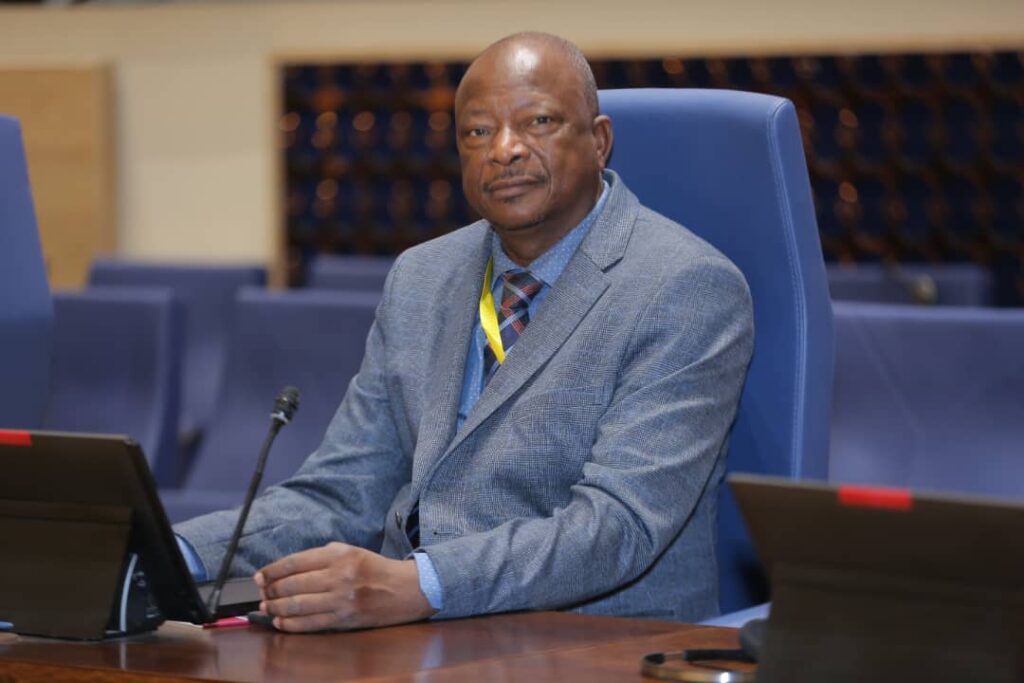
Can you give us an overview of the destination Niger?
Niger is a landlocked country in West Africa located between Algeria and Libya to the north, Mali and Burkina Faso to the west, Benin and Nigeria to the south, and Chad to the east. With a surface area of 1,267,000 km2, it is the largest of the West African countries. The population of Niger is estimated at 26,747,896 million in 2022, with a growth rate of 3.9% and a GDP/H of 213,450 FCFA with a growth rate of 10.8%. The main cities are Agadez, Diffa, Dosso, Maradi, Tahoua, Tillaberi, Zinder, Niamey.
The official language in Niger is French, and the currency is the CFA franc with an inflation rate of 0.5%. Niger is a landlocked country with a Sahelian climate that has only 3 months of rainy season per year. The capital of Niger is Niamey with 1,011,277 inhabitants.
The country’s geographical position makes it a major crossroads for trade between Sub-Saharan Africa and the Arab Maghreb countries. Niger’s most important mineral resources are gold, iron, coal, uranium, and oil. Niger is easily accessible, particularly by air from Europe and from other African countries. There are thirteen (13) border crossings into Niger.
Niger, through its eight regions, contains cultural and wildlife riches, historical and archaeological remains, and magnificent tourist sites to discover. These include the Aïr Massif, the Ténéré, Termit and Tal deserts, the dinosaur cemetery, the Addax sanctuary, the last specimens of West African giraffes, the W Park, traditional architecture and the rich and varied age-old craft industry, which has adapted to the current modern context.
What are the main tourist products of Niger? Niger is divided into 8 regions: Niamey, Agadez, Dosso, Maradi, Tahoua, Tillabéry, Zinder and Diffa. Each of them has certain natural assets and comparative advantages in terms of the vestiges of age-old civilisations such as archaeology, history, traditional architecture, culture, parks and protected areas, fauna, flora, arts and crafts, etc.
Niger’s tourism product is centered on three destinations: “Saharan Tourism” in the North with the Blue Mountains of Aïr, the Oases of Kawar, the Citadel of Djado and the vast and mythical deserts of Ténéré, Termit and Tal, the Rupestral Engravings, the Dinosaur Cemeteries, the Sanctuary of Addax, the Mosque of Agadez, the Thermal Spring of Tafadek, the Crafts, etc.
This region is the main tourist attraction where one finds an authentic culture still entirely preserved (Festival of Aïr and the Salt Cure, the Bianou under the bewitching rhythm of the Touareg Tendé). A crossroads of exchanges and a meeting place where Tuaregs, Woodabé, Fulani, Arabs, Toubous and Haoussas rub shoulders, Agadez was one of the major stages of the Paris – Dakar Rally.
“Cultural tourism” is dominant in Central-Eastern Niger and presents a rich cultural and artisanal diversity. It is the land of great African empires such as Kanem Bornou, the Hausa city-states and the Peulh empire of Sokoto, and of influential sultanates such as Damagaram. This region has a high concentration of typical architectural works, and the influence of the traditional chieftaincy is still very much in evidence.
“Endowed with magnificent tourist sites and numerous resources that can allow the development of all forms of Tourism, NIGER can rightly be considered as a Great Country of Tourism”.
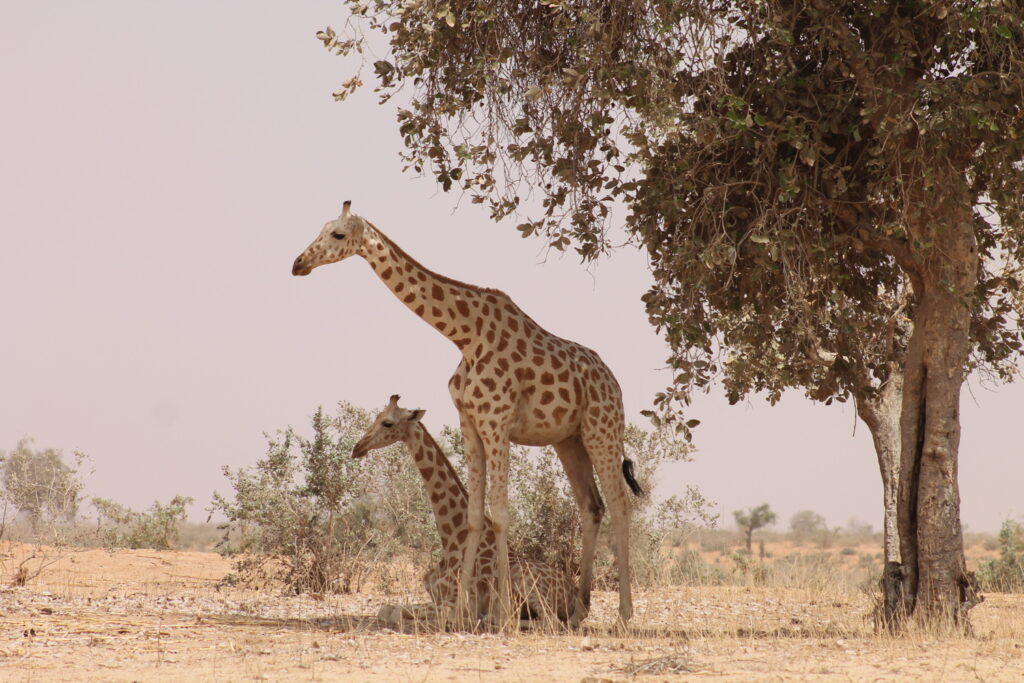
What are the Agency’s plans to position tourism as a key economic driver in Niger? Given the situation in the Sahel, we have carried out an uncompromising diagnosis to determine the most appropriate strategy for putting tourism back at the heart of Niger’s economic ambitions. The environments characterised by the covid 19 pandemic and the insecurity in the Sahel require us to reorient our priorities to adapt them to the context. Until recently, 78% of our tourism offer was oriented towards Western clients.
It is difficult for us to ignore the disadvantageous situation that this approach imposes on us. Therefore, the option is to choose the Nigerian middle class and the countries of the sub-region as our promotional target.
This realignment of our priorities requires us to review our offer to adapt it not only to the portfolios of our targets but also to their cultural and cultural concerns. This also implies acting in concert with private promoters to accompany them in redefining their commercial strategies which must imperatively be in line with the tastes and purchasing power of these new targets.
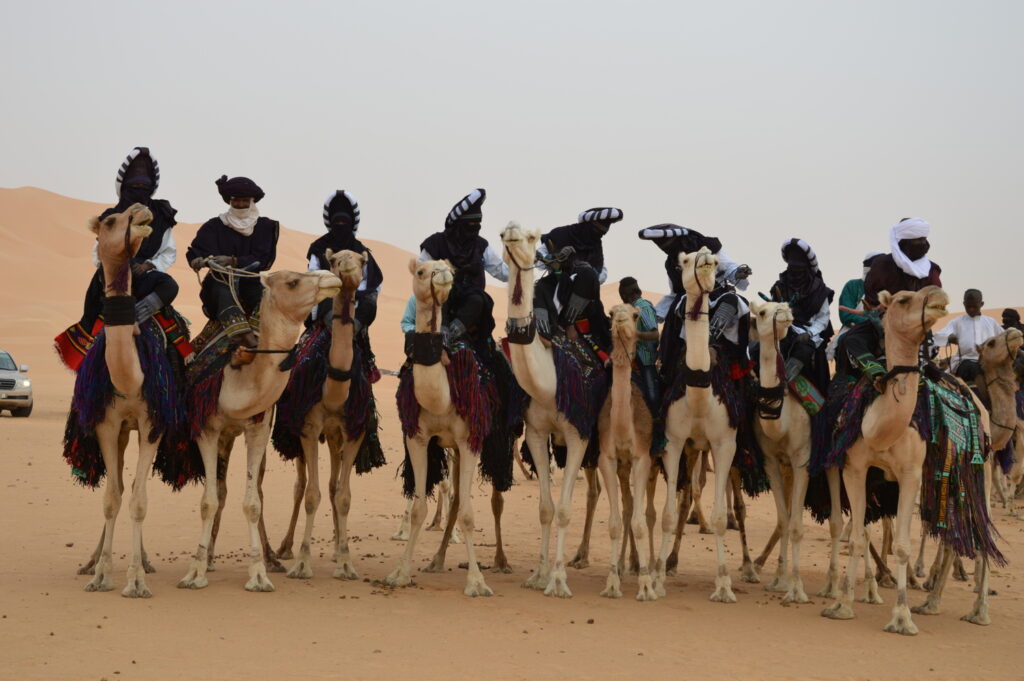
The second axis of our strategy is to improve the quality of the offer. Most promoters are not from the tourism sector and tend to employ family members who are trained on the job. The Niger Tourism Promotion Agency has a training centre for the tourism and hotel industry, whose purpose is to provide capacity building for the staff of tourism and hotel units in order to improve the quality of services to customers.
The third focus of our strategy is to develop national and regional demand through intensive communication. We have a young population in our countries to whom we must give the desire to discover or rediscover the riches of Niger. APTN has started a digital marketing campaign that is focused on the Net and social networks in particular. Our campaign to promote the destination is based on storytelling. Each site has a story to tell about the region in which it is located, the hidden beauties of its regions, and an experience to be had.
The fourth axis of our strategy is to organise eductours to allow travel prescribers and tourism information professionals to discover the products offered by Niger tourism and to collect their opinions in order to make the necessary adjustments to better respond to travellers’ demands.
The fifth axis is to make all the national and international events organized in Niger into tourism products with tour and discovery offers as well as adapted activities to enhance the participants’ stays.
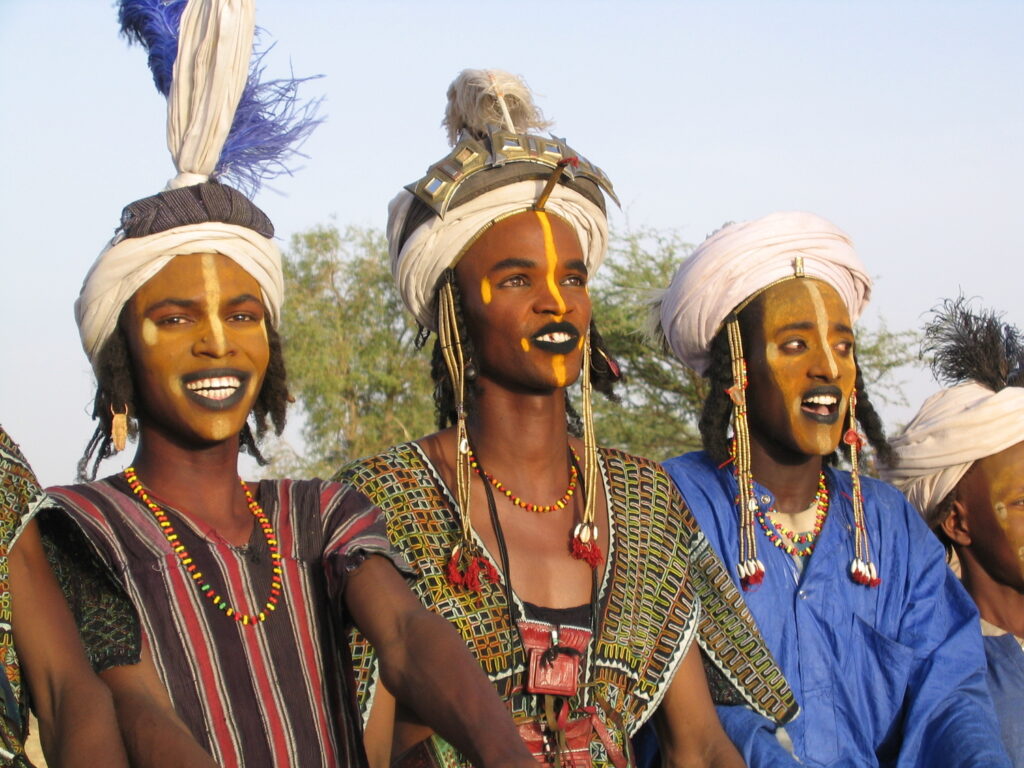
We are also planning to run communication campaigns in certain large-audience media to attract customers. We aim to reach a maximum number of target travellers.
Finally, we plan to participate in trade fairs that we consider relevant to our objectives in order to engage with travellers and stakeholders in the sector.
What is your projection for tourism in Niger for 2023? Our projection for tourism in Niger for the coming year is that it will be dominated by business tourism because Niger is showing a growth rate that is whetting the interest of investors. Niger has resolutely positioned itself as a hub for international events and our ambition is to make them niches to boost related tourism events.
Regions such as Zinder and Agadez have tourism potential for a revival of tourism in secure environments. National events such as the Aïr Festival, the Bianou, the salted wax; the Gueréwol and the hotoungo which take place in secure environments will be niches which will be programmed to welcome charter flights of tourists.
Niger offers a different product from those offered by most destinations in the UEMOA region. We believe that a good partnership between travel agencies in this area could boost the promotion of inter-state tours, which is dear to the UEMOA
The year 2023 will be the start of the domestic tourism development programme “Nigeriens rediscover Niger”.
This article was first published in the March 2023 issue of VoyagesAfriq Travel Magazine

VoyagesAfriq is Africa’s No 1 Travel & Tourism Media & News publication with specialist interests in presenting the continent's travel & tourism to a Global Audience. VA provides superior News content about Travel and Tourism in Africa & beyond. Our specialist team of writers and editors ensure the African travel story is told with a global perspective.
WhatsApp: +33744287093
Sign Up for our Newsletter
Top Things to Do in Niger
Places to visit in niger, explore popular experiences, popular cities in niger.
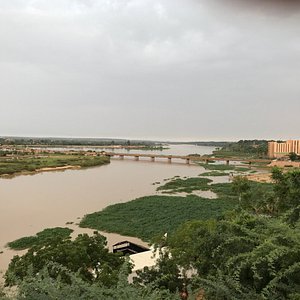
Top Attractions in Niger
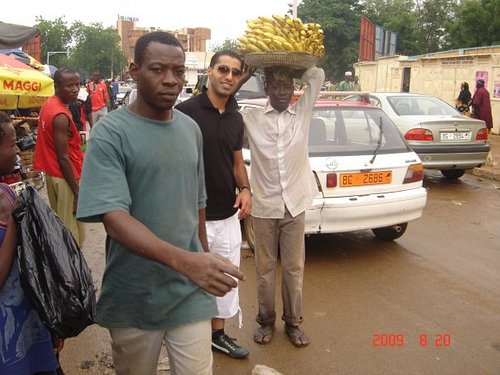
What travellers are saying
Security Alert May 17, 2024
Worldwide caution, update may 10, 2024, information for u.s. citizens in the middle east.
- Travel Advisories |
- Contact Us |
- MyTravelGov |
Find U.S. Embassies & Consulates
Travel.state.gov, congressional liaison, special issuance agency, u.s. passports, international travel, intercountry adoption, international parental child abduction, records and authentications, popular links, travel advisories, mytravelgov, stay connected, legal resources, legal information, info for u.s. law enforcement, replace or certify documents.
Before You Go
Learn About Your Destination
While Abroad
Emergencies
Share this page:
Travel Advisory January 8, 2024
Niger - level 3: reconsider travel.
Last updated on January 8, 2023, to remove the Ordered Departure of non-emergency U.S. government employees and eligible family members, and lower the overall risk level from Level 4 to Level 3.
Reconsider travel to Niger due to risk of crime , civil unrest, terrorism , and kidnapping .
Violent crimes, such as armed robbery, are common.
Demonstrations, while generally peaceful, may become violent at any time and lead to civil unrest.
Terrorist groups continue plotting kidnappings and possible attacks in Niger. Terrorists may attack with little or no warning, targeting foreign and local government facilities and areas frequented by Westerners. Terrorists operate in the areas bordering Mali, Libya, Burkina Faso, and throughout northern Niger. Avoid travel to Niger’s border regions, particularly the Malian border area, Diffa region, and the Lake Chad region. Mali-based extremist groups have crossed the border and conducted multiple lethal attacks on Nigerien security forces.
Visit our website for Travel to High-Risk Areas .
Read the country information page for additional information on travel to Niger.
If you decide to travel to Niger:
- Visitors are urged to stay in hotels with armed Nigerien security presence.
- Do not physically resist any robbery attempt.
- Use caution when walking or driving at night.
- Keep a low profile.
- Be aware of your surroundings.
- Monitor local media for breaking events and be prepared to adjust your plans.
- Stay alert in locations frequented by Westerners.
- Make contingency plans to leave the country.
- Have evacuation plans that do not rely on U.S. government assistance.
- Keep travel documents up to date and easily accessible.
- Enroll in the Smart Traveler Enrollment Program ( STEP ) to receive security messages and make it easier to locate you in an emergency.
- Follow the Department of State on Facebook and Twitter .
- Review the Country Security Report for Niger.
- Prepare a contingency plan for emergency situations. Review the Traveler’s Checklist .
- Visit the CDC page for the latest Travel Health Information related to your travel.
Embassy Messages
View Alerts and Messages Archive
Quick Facts
Must be valid at time of entry
Two pages are required for entry stamp
Yellow fever vaccination required
Embassies and Consulates
U.s. embassy niamey.
Rue des Ambassades, BP 11201 Niamey, Niger Republic Telephone: +(227) 20-72-26-61 Emergency After-Hours Telephone: +(227) 99-49-90-66 [email protected]
Destination Description
Learn about the U.S. relationship to countries around the world.
Entry, Exit and Visa Requirements
Visit the Embassy of Niger’s website for the most current visa information.
A passport, visa, and proof of vaccination against yellow fever are required for entry into Niger. For additional immunization information, visit the CDC’s Health Information for Travelers to Niger .
Travelers from the United States should obtain a visa from the Embassy of Niger before arriving in Niger. Failure to do so could result in being denied entry to Niger. Travelers should obtain the latest information on entry/exit requirements from the Embassy of the Republic of Niger, located at 2204 R Street NW, Washington DC 20008; telephone: (202) 483-4224.
The U.S. Department of State is unaware of any HIV/AIDS entry restrictions for visitors to or foreign residents of Niger.
Find information on dual nationality , prevention of international child abduction , and customs information on our websites.
Safety and Security
Travelers to Niger are urged to exercise extreme caution due to the risk of terror attacks and kidnapping threats against Westerners. U.S. citizens should reduce exposure to locations frequented by Westerners such as restaurants and nightclubs. Visitors are urged to stay in hotels with armed Nigerien security presence.
Due to security threats, the U.S. Embassy restricts the travel of U.S. government employees and official visitors outside of Niamey. These restrictions may limit the ability of the U.S. Embassy to assist visitors in these areas.
The border region with Mali continues to be of specific concern. There are frequent and ongoing reports of terrorists and affiliates crossing into and through Niger from Mali. A U.S. citizen was kidnapped from the area in October 2016.
Niger’s southeastern border with Nigeria and east of Maradi are poorly controlled. Boko Haram and several factions affiliated with ISIS have conducted cross-border attacks into Niger. The Government of Niger has increased its security forces in the border areas, but the situation remains unstable and travel is not advised.
For travel in any remote area of the country, the Department of State urges travelers to use guides and to travel with a minimum of two vehicles equipped with global positioning systems (GPS) and satellite phones.
Street demonstrations occur frequently in Niger. Even demonstrations intended to be peaceful can turn confrontational without warning. Avoid demonstrations and maintain security awareness at all times. Refer to the U.S. Embassy Niger website for the most updated safety and security information.
Crime: Thefts and petty crimes are common day or night. Tourists should not walk alone in Niger, but areas in Niamey near the Gaweye Hotel, the National Museum, the Petit Marché, and on or near the Kennedy Bridge are of particular concern. In general, walking at night is not recommended.
Counterfeit and pirated goods are available, but transactions involving such products may be illegal under local law. Carrying them back to the United States may result in forfeitures and/or fines.
See the Department of State and the FBI pages for information on scams.
Victims of Crime:
If you or someone you know becomes the victim of a crime abroad, contact the local police and the nearest U.S. embassy or consulate. There is no local equivalent to a “911” emergency line in Niger. U.S. citizens can try calling local police by dialing “17” on Nigerien phones or +227-20-72-25-53, but calls to these numbers often go unanswered, especially outside of normal working hours. The Embassy highly recommends hiring guards for your residence if you are planning to live in Niger.
Remember that local authorities are responsible for investigating and prosecuting the crime.
See our webpage on help for U.S. victims of crime overseas .
- help you find appropriate medical care
- assist you in reporting a crime to the police
- contact relatives or friends with your written consent
- explain the local criminal justice process in general terms
- provide a list of local attorneys
- provide our information on victim’s compensation programs in the U.S.
- provide an emergency loan for repatriation to the United States and/or limited medical support in cases of destitution
- help you find accommodation and arrange flights home
- replace a stolen or lost passport
Domestic Violence: U.S. citizen victims of domestic violence may contact the Embassy for assistance.
Tourism: The tourism industry is unevenly regulated, and safety inspections for equipment and facilities do not commonly occur. Hazardous areas/activities are not always identified with appropriate signage, and staff may not be trained or certified either by the host government or by recognized authorities in the field. Tourists are considered to be participating in activities at their own risk. Emergency response and subsequent appropriate medical treatment is not available in-country. U.S. citizens are encouraged to purchase medical evacuation insurance. See our webpage for more information on insurance providers for overseas coverage .
Local Laws & Special Circumstances
Criminal Penalties: You are subject to local laws. If you violate local laws, even unknowingly, you may be expelled, arrested, or imprisoned.
Furthermore, some laws are also prosecutable in the U.S., regardless of local law. For examples, see our website on crimes against minors abroad and the Department of Justice website.
Arrest Notification: If you are arrested or detained, ask police or prison officials to notify the U.S. Embassy immediately. See our webpage for further information.
Faith-Based Travelers: See our following webpages for details:
- Faith-Based Travel Information
- International Religious Freedom Report – see country reports
- Human Rights Report – see country reports
- Best Practices for Volunteering Abroad
LGBTI Travelers: There is strong societal stigma against same-sex sexual activity in Niger, but no laws criminalizing consensual same-sex sexual activity in general. The law states, however, that an “unnatural act” with a person of the same sex who is under 21 is punishable by six months to three years in prison and a fine of between 9,000 and 90,000 CFA francs ($16-$160).
See our LGBTI Travel Information page and section 6 of our Human Rights report for further details.
Dress restrictions: Local culture and Islamic tradition encourage conservative dress for both men and women. There have been incidents of groups of men assaulting women who appear to be African and who are wearing clothing other than traditional garments.
Photography restrictions: Tourists are free to take pictures anywhere in Niger, except near military installations, radio and television stations, the Presidential Palace, airports, or diplomatic facilities. Tourists should not photograph military or police personnel, or political or student demonstrations, and should seek prior permission before taking a close-up “portrait” photo of an individual.
Currency regulations: Niger shares the West African Franc (CFA) with several other West African countries. The CFA may be converted into dollars. Foreign currency exchange over 1 million CFA (about $1,900 at an exchange rate of about 530 CFA/$1) requires authorization from the Ministry of Finance (forms available from all major banks).
Telephone service: Due to poor line quality, callers often experience delays in getting a telephone line, and faxes are often unclear. Service quality is generally better with cellular service, which is available from multiple providers in urban areas. Connections between cell phones and land lines are often poor quality and may fail to connect at all.
Travelers Who Require Accessibility Assistance: Nigerien law mandates that the state provide for persons with physical and mental disabilities, but there are no specific regulations mandating accessibility to buildings, transportation, and communication for those with special needs. There is extremely limited accessibility to public transportation, road crossings, taxis, restaurants, cafes, bars, and other tourist spots.
Students: See our Students Abroad page.
Women Travelers: Female Genital Mutilation (FGM) in Niger is punished by a fine and a jail sentence. Between 1998 and 2006 the practice of FGM on girls aged 15 to 49 was reduced by 50% (5% to 2.2%) although ethnic and regional disparities remain, with a pocket of the most intense FGM practice persisting in far Western Niger. Forced marriage or marriage without the consent of one or both parties still happens in Niger, and victims are often minor 15-18 year old girls. Women have limited access to education and employment (less than 15% of women can read.)
See our travel tips for Women Travelers .
Health and emergency services are extremely limited in Niamey, and completely inadequate outside the capital. Air quality is poor in Niamey. Travelers with respiratory conditions are cautioned that they may experience worsening symptoms in Niger.
Documentation of yellow fever vaccination is required for those over nine months of age upon arrival in Niger.
Mosquito borne illnesses such as malaria are the leading cause of dealth in Niger. Documentation of yellow fever immunization is required for travelers prior to arrival in Niger. Zika virus is a risk in Niger. Because Zika infection in a pregnant woman can cause birth defects; pregnant women should not visit Niger. All travelers should follow steps to prevent mosquito bites and sexual exposure to Zika during and after the trip.
Diarrheal illness is quite prevalent, even in cities and luxury accommodations. Tap water is not potable.
We do not pay medical bills. Be aware that U.S. Medicare does not apply overseas.
Medical Insurance: Make sure your health insurance plan provides coverage overseas. Most care providers overseas only accept cash payments. See our webpage for more information on insurance providers for overseas coverage .
We strongly recommend supplemental insurance (our webpage) to cover medical evacuation.
If traveling with prescription medication, check with the Government of Niger to ensure the medication is legal in Niger. Always, carry your prescription medication in original packaging with your doctor’s prescription.
The following diseases are prevelant in Niger:
- Yellow Fever
- Meningococcal Meningitis
- Dengue Fever
- Tuberculosis
Vaccinations: Be up-to-date on all vaccinations recommended by the U.S. Centers for Disease Control and Prevention.
Further health information:
- World Health Organization
- U.S. Centers for Disease Control and Prevention (CDC)
Travel and Transportation
Road Conditions and Safety: Road safety throughout Niger is a concern. Travel outside Niamey and other cities often requires four-wheel-drive vehicles. Driving at night is always hazardous and should be avoided. There have been occasional car-jackings and highway robberies throughout the country.
The main causes of accidents are driver carelessness, excessive speed, poorly maintained vehicles, and poor to non-existent road surfaces. Urban traffic includes bicycles, pedestrians, livestock, donkey carts, and hand carts as well motor vehicles. Overloaded trucks, buses, and other vehicles are common everywhere. Disabled vehicles are generally repaired in place, often partially blocking traffic lanes.
Police checkpoints are common both in cities and on rural roads. On rural roads, police will check for license, registration, proof of insurance, and destination.
Traffic signals in Niamey often do not work properly. Traffic signs are often missing, damaged, or obscured.
Traffic Laws: All drivers must have either a valid Nigerien or international driver’s license. Local liability insurance is required for all vehicles. Traffic laws are based on the French system. Unless marked otherwise, at traffic circles and intersections, traffic must yield to vehicles entering from the right.
Headlights should not be used during the day. Except in emergencies, only police and military vehicles are allowed to use headlights during daylight hours. Horns should not be used after dark.
Drivers are required to pull over for: official motorcades or military convoys with headlights on, public emergency vehicles with sirens on, and funeral processions.
Accidents involving minor damage (“fender benders”) generally only require an exchange of insurance information. However, accidents involving more serious damage or injuries, or where there is any dispute over insurance or who is at fault, will require police involvement. In any accident where the police are involved, vehicles should not be moved before the police arrive.
Public Transportation: While taxis are available at a fixed fare in Niamey, most are in poor condition and do not meet basic U.S. road safety standards. Inter-city “bush-taxis” are available at negotiable fares, but these vehicles (minibuses, station wagons, and sedans) are generally older, unsafe models that are overloaded, poorly maintained, and driven by reckless operators seeking to save time and money.
A national bus company (SNTV) operates coaches on inter-city routes and, since being reorganized in 2001, has provided reliable service and has experienced no major accidents. Air Transport, Rimbo, and Garba Messagé are private bus companies operating in Niger. Concerns exist regarding the youth of drivers and the speed with which the private buses travel the Nigerien roads.
See our Road Safety page for more information.
Aviation Safety Oversight:
As there is no direct commercial air service to the United States by carriers registered in Niger, the U.S. Federal Aviation Administration (FAA) has not assessed the government of Niger’s Civil Aviation Authority for compliance with International Civil Aviation Organization (ICAO) aviation safety standards. Further information may be found on the FAA’s safety assessment page .
For additional travel information
- Enroll in the Smart Traveler Enrollment Program (STEP) to receive security messages and make it easier to locate you in an emergency.
- Call us in Washington, D.C. at 1-888-407-4747 (toll-free in the United States and Canada) or 1-202-501-4444 (from all other countries) from 8:00 a.m. to 8:00 p.m., Eastern Standard Time, Monday through Friday (except U.S. federal holidays).
- See the State Department’s travel website for the Worldwide Caution and Travel Advisories .
- Follow us on Twitter and Facebook .
- See traveling safely abroad for useful travel tips.
Review information about International Parental Child Abduction in Niger . For additional IPCA-related information, please see the International Child Abduction Prevention and Return Act ( ICAPRA ) report.
Travel Advisory Levels
Assistance for u.s. citizens, learn about your destination, enroll in step.

Subscribe to get up-to-date safety and security information and help us reach you in an emergency abroad.
Recommended Web Browsers: Microsoft Edge or Google Chrome.
Check passport expiration dates carefully for all travelers! Children’s passports are issued for 5 years, adult passports for 10 years.
Afghanistan
Antigua and Barbuda
Bonaire, Sint Eustatius, and Saba
Bosnia and Herzegovina
British Virgin Islands
Burkina Faso
Burma (Myanmar)
Cayman Islands
Central African Republic
Cote d Ivoire
Curaçao
Czech Republic
Democratic Republic of the Congo
Dominican Republic
El Salvador
Equatorial Guinea
Eswatini (Swaziland)
Falkland Islands
France (includes Monaco)
French Guiana
French Polynesia
French West Indies
Guadeloupe, Martinique, Saint Martin, and Saint Barthélemy (French West Indies)
Guinea-Bissau
Isle of Man
Israel, The West Bank and Gaza
Liechtenstein
Marshall Islands
Netherlands
New Caledonia
New Zealand
North Korea (Democratic People's Republic of Korea)
Papua New Guinea
Philippines
Republic of North Macedonia
Republic of the Congo
Saint Kitts and Nevis
Saint Lucia
Saint Vincent and the Grenadines
Sao Tome and Principe
Saudi Arabia
Sierra Leone
Sint Maarten
Solomon Islands
South Africa
South Korea
South Sudan
Switzerland
The Bahamas
Timor-Leste
Trinidad and Tobago
Turkmenistan
Turks and Caicos Islands
United Arab Emirates
United Kingdom
Vatican City (Holy See)
External Link
You are about to leave travel.state.gov for an external website that is not maintained by the U.S. Department of State.
Links to external websites are provided as a convenience and should not be construed as an endorsement by the U.S. Department of State of the views or products contained therein. If you wish to remain on travel.state.gov, click the "cancel" message.
You are about to visit:

Tourism in Niger
Development of the tourism sector in niger from 1995 to 2020.

Revenues from tourism

All data for Niger in detail
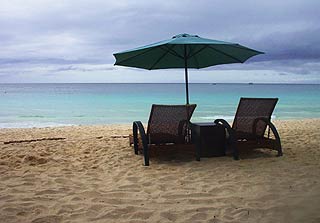
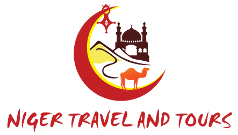
Niger Travel and Tours

Main navigation
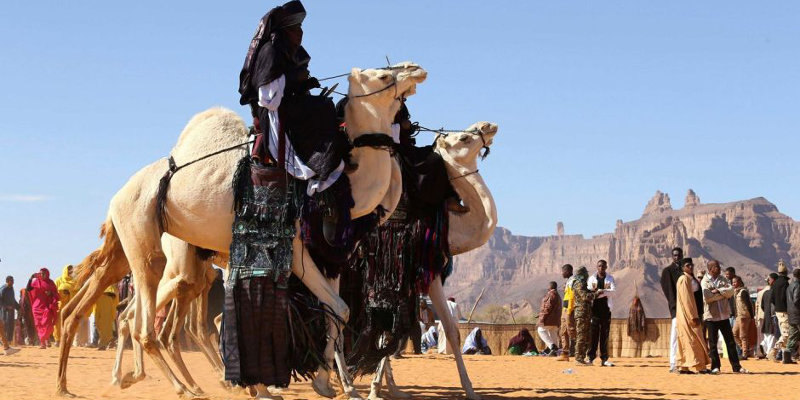
We provide real, guided, safe, insured, comfortable, and amazing Africa holidays in Niger. From voyaging on the Niger River, to Sahara tours in Agadez, Arlit and the Ténéré Desert and Air Mountains, to Lake Chad and the frontiers of the Sahel, & to spectacular and original Niger Safaris. Travel to Niger and see animals, tribes, lost kingdoms, and ancient culture. This is real and exhilarating Africa, and its most remote reaches and beautiful alien landscapes. Come see it all safely and affordably with Niger Travel and Tours.
Our guides come from a family who have been working in tourism for 3 generations now, with an in-house fleet of vehicles, years of experience and exploration in the deepest reaches of the desert, and a knowledge of everything in Niger from new Dinosaur Bone sites to the Toureg Culture and Jewelry. Want licensed, registered guides and operators, who deliver the best, most comprehensive catalog of tours in the country – Safely AND affordably?
See us at our office – BP 12665, Niamey, Between the National Assembly and Municipal Stadium, Niger. (Write us to make an appointment) – Contact Us
Welcome to the most remote, most beautiful deserts in the world. With locals never jaded by the tourist hordes of Egypt and Morocco…with National Parks and all the Big 5 animals at prices far below Kenya and Tanzania…and with some of the most fascinating, charismatic, and mysterious people in Africa and on earth.
Welcome to the graveyard of a million dinosaur bones, to the most romantic river ride in Africa, and to one of the last frontiers of tourism in the world. Welcome to the land of colorful cultural festivals, of rugged Taureg spirit, and to the heart of the Sahara. To its most beautiful, and oldest, soul.
Welcome to Niger.

- 1. W National Park Safari
- 2. Niger River Odyssey to W Park
- 3. Ancient Kingdoms of the Sahel
- 4. Niger Essential
- 5. Exotic Surroundings
- 6. Weekend Safari and Fishing
- 7. Trans-Sahel: Zinder and Lake Chad
- 8. Niger Express Combo Tour Overland
- 1. Grand Tour of The Ténéré Desert
- 2. AÏr – Ténéré by Arbre du Ténéré
- 3. AÏr Mountains 7-Day
- 4. AÏr Mountains 5-Day
- 5. Méharée – the Aïr Mountains
- 6. Aïr Mountains Camelback Treak
- 7. Annual Group 50% Off Tour
- 1. Niger Express Combo Tour Overland: Niamey, Tahoua, and Agadez – 7 Days
- 2. Niger Grand Circle Tour: Niamey, Maradi, Zinder, Tahoua, and Agadez – 2 Weeks
- 3. Niger Triangle Tour Circuit: Niamey – Zinder – Agadez – 7 Days
- 4. Niger Triangle Tour Extended Version – By Bus – 10 Days
- 5. Niger Sampler with Security Tour – 10 Days
- 1. River Voyage
- 2. River-side Barbecue
- 3. Barbecue & Camping
- 4. Kouré Wild Giraffes
- 5. W National Park
- 6. City, Culture, and History Tour
- 1. Gerewol Festival 8 Day
- 2. Gerewol Festival 10 Day
- 3. Gerewol Festival 12 Day
- 4. Agadez African Music Festival
- 5. Cure Salee Festival Private Group Package
- 6. Bianou and Gerewol Festival Combo Package – 12 Days
- 7. Bianou Festival- 7 Days
- 1. Visa Services
- 2. Vehicle & Driver Rental
- 3. Niamey to/from Agadez Flight
- 4. Travel Insurance
- 5. Niger Private & Armed Security Services
- 6. Security Escort for Solo Travel
- 7. Vehicle Rental or Carnet
- 8. Other Services, Staffing, & HR in Niger
- Niger-Chad Tour
- Booking Terms & Conditions
- Vehicles and Insurance
- Travel In Niger

Rehabilitation of SULEJA – MINNA ROAD
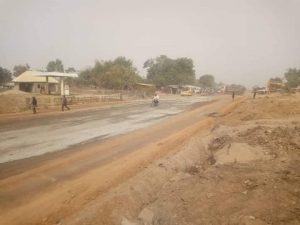
Repair of failed portions along Pago and after Paiko

WE ARE TAKING HOLISTIC APPROACH TO END BANDITRY ATTACKS IN THE COUNTRY
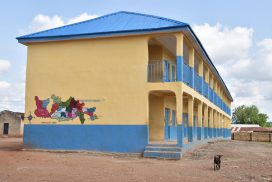
Construction of Chanchaga Primary School by SUBEB
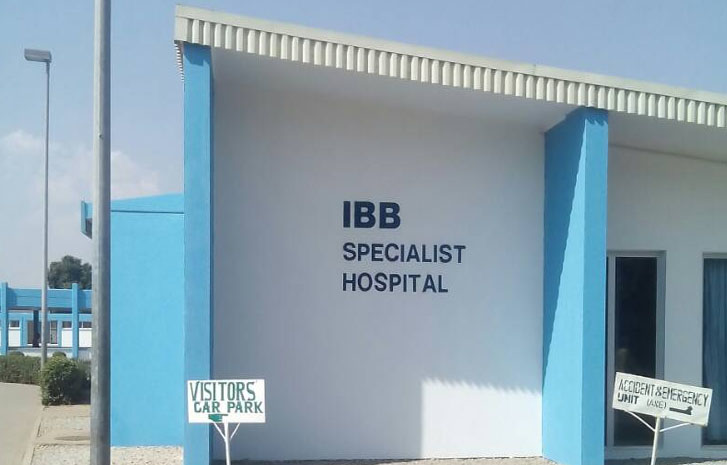
The state, Gov Abu Sani Bello is currently renovating IBB Specialist Hospital Minna.

Ministry Of Agriculture and Rural Development

Ministry Of Health

Ministry Of Culture and Tourism

Ministry Of Education
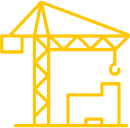
Ministry Of Works & Infrastructural Development

Ministry Of Tertiary Edu Science And Technology
News From the Power State
NIGER STATE GOVERNMENT WOOS INVESTOR IN AGRICULTURE
Farmer governor umaru bago reiterates that agriculture is key for sustainable growth, one-year anniversary: farmer gov umaru bago hails cabinet members ***calls for more hard work, dangote group of companies to establish the biggest rice mill in niger state ***to provide 500 of 40ft of empty containers for farm estates, farmer governor umaru bago approves n25b for payment of pension and gratuities owed retired civil servants in niger state ****inaugurates 200 cng buses and other vehicles.

May 30, 2024
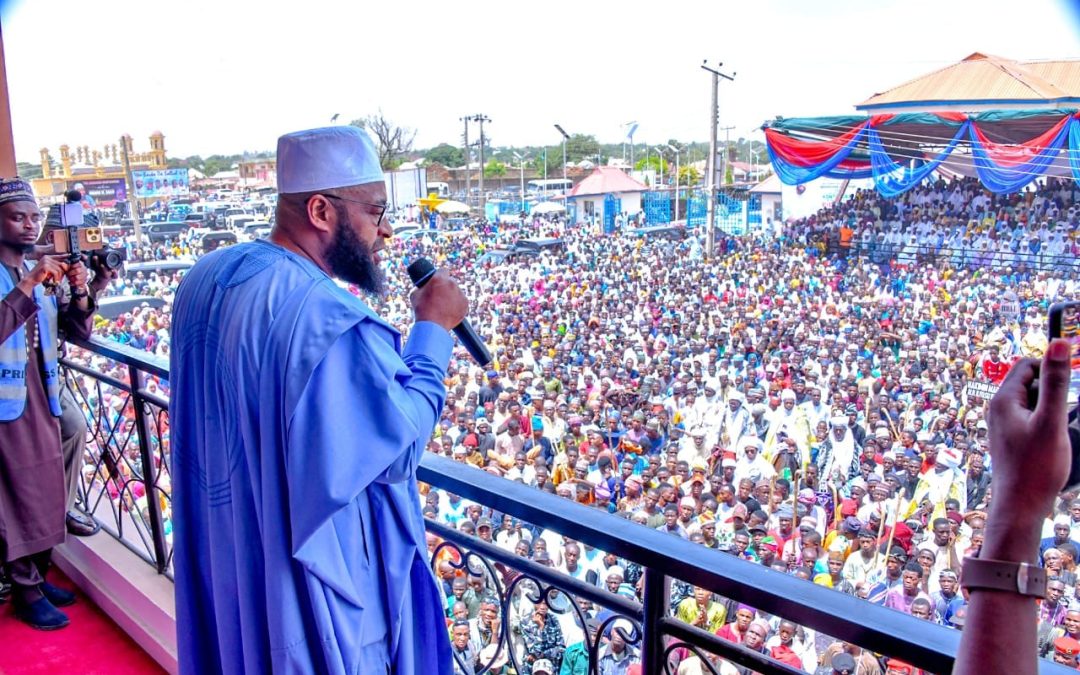
FARMER GOVERNOR UMARU BAGO ATTENDS MINI DURBAR IN KONTAGORA *** RESTATES COMMITMENT TO ADDRESSING INSECURITY IN THE STATE TO PAVE THE WAY FOR RAPID DEVELOPMENT
May 8, 2024
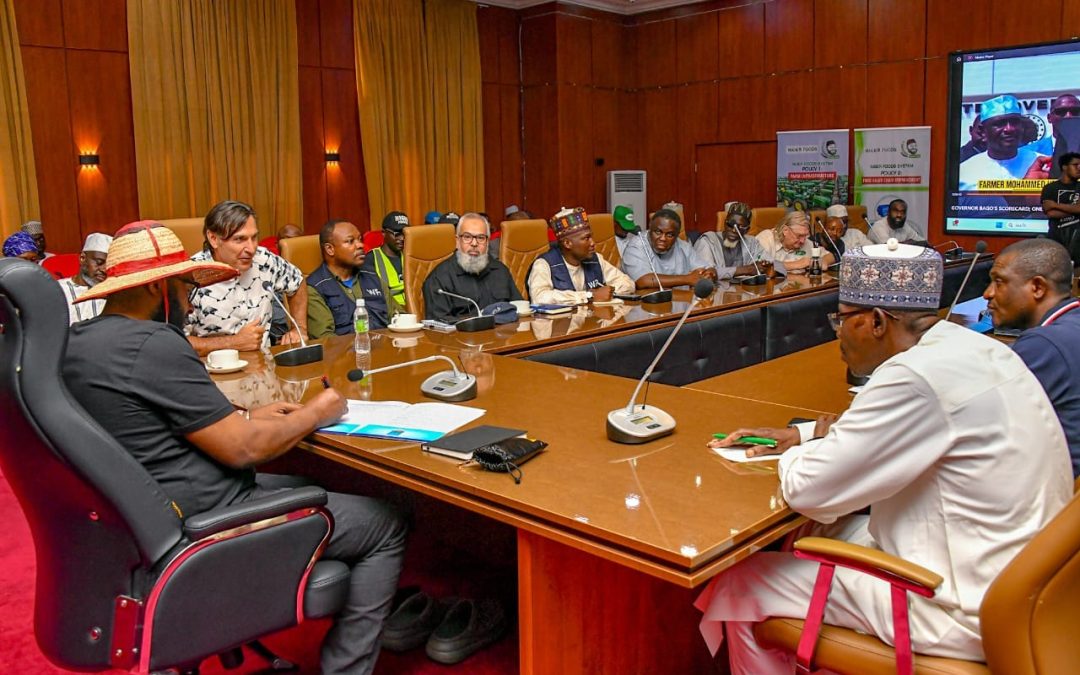
FARMER GOVERNOR UMARU BAGO TASKS LIVESTOCK & POULTRY FARMERS TO SUPPORT THE FREE VACCINATION CAMPAIGN FOR ANIMALS TO SAFEGUARD THEIR HEALTH A D INCREASE PRODUCTIVITY

Corporate Affairs
Scholarship
Top Niger Attractions
Things to do in niger, explore popular experiences, what travelers are saying.
The Best Attractions In Niger
- 1. Agadez Grande Mosquee Agadez
- 2. National Museum of Niger (Musee National du Niger) Niamey Musée National Boubou Hama is the national museum of Niger, located in Niamey. It was founded in 1959 as Musée National du Niger. Its first conservator, Pablo Toucet, designed the concept of the museum, according to which it was part of the Culture Valley of Niamey, proposed by Boubou Hama. Adjacent to the museum, also part of the Valley, are the Franco-Nigerien Cultural Center and the Center of Linguistic and Historical Studies by Oral Tradition. The museum is located in a park, it consists of a cultural and a scientific section and a zoo. The museum also hosts temporary exhibitions.Most of the exhibits represent ethnological, archaeological, and cultural artifacts. In particular, the museum shows traditional dwellings of different Nigerien cultures.As of 2013, 170,000 visitors visited ... From Wikipedia , the free encyclopedia.
- 3. Koure Giraffe Reserve Koure Kouré is a rural community located 60 kilometres east of Niamey, the capital of Niger. The town lies on both sides of the road from Niamey to Dallol Bosso. Kouré is best known for West African giraffes , an endemic subspecies of West Africa. The population of giraffes in Niger reached a low of 50 animals 1984, but according to the Association to Safeguard Giraffes in Niger there are now 170 of them. ASGN and its partners have assisted the local community with bore holes, cereal banks, grain mills, seeds and fertilizer to encourage them to protect the giraffes, which can be destructive to crops. However, the population of giraffes is threatened by loss of the tiger bush habitat, which is gradually being cleared for agriculture.The African Wildlife Foundation is helping with reforestation.... From Wikipedia , the free encyclopedia.
- 4. Sultan's Palace Zinder
- 5. Niger Sahara Zinder Region Zinder , formerly also spelled Sinder, is the second largest city in Niger, with a population of 170,574 ; by 2005 its population was estimated to be over 200,000. It is situated 861 km east of the capital Niamey and 240 km north of the Nigerian city of Kano. From Wikipedia , the free encyclopedia.
- 6. Grand Marche Niamey The Niamey Grand Market is the largest market and shopping center in Niamey, the capital and largest city in the West African state of Niger. From Wikipedia , the free encyclopedia.
- 7. Niamey Grand Mosque Niamey Niamey is the capital and largest city of the West African country Niger. Niamey lies on the Niger River, primarily situated on the east bank. It is an administrative, cultural and economic centre. Niamey's population was counted as 978,029 as of the 2012 census; the Niamey Capital District, covering 670 km2, had 1,026,848 people. As of 2017, population projections show the capital district growing at a slower rate than the country as a whole, which has the world's highest fertility rate.The city is located in a pearl millet growing region, while manufacturing industries include bricks, ceramic goods, cement and weaving. From Wikipedia , the free encyclopedia.
- 8. The Old Quarter Agadez The Sahara is the largest hot desert and the third largest desert in the world after Antarctica and the Arctic. Its area of 9,200,000 square kilometres is comparable to the area of China or the United States. The name 'Sahara' is derived from a dialectal Arabic word for desert, ṣaḥra .The desert comprises much of North Africa, excluding the fertile region on the Mediterranean Sea coast, the Atlas Mountains of the Maghreb, and the Nile Valley in Egypt and Sudan. It stretches from the Red Sea in the east and the Mediterranean in the north to the Atlantic Ocean in the west, where the landscape gradually changes from desert to coastal plains. To the south, it is bounded by the Sahel, a belt of semi-arid tropical savanna around the Niger River valley and the Sudan Region of Sub-Saharan Afri... From Wikipedia , the free encyclopedia.
- 9. Ferme Youyou Niamey
- 10. Birni Quarter Zinder
- 11. Air Mountains Niger The Aïr Mountains or Aïr Massif is a triangular massif, located in northern Niger, within the Sahara Desert. Part of the West Saharan montane xeric woodlands ecoregion, they rise to more than 1,800 m and extend over 84,000 km2 . Lying in the midst of desert north of the 17th parallel, the Aïr plateau, with an average altitude between 500 and 900 m , forms an island of Sahel climate which supports a wide variety of life, many pastoral and farming communities, and dramatic geological and archaeological sites. There are notable archaeological excavations in the region that illustrate the prehistoric past of this region. The endangered painted hunting dog once existed in this region, but may now be extirpated due to human population pressures in this region. From Wikipedia , the free encyclopedia.
- 12. Mosquee Cite Caisse Niamey
- 13. Cathedral of Our Lady of Perpetual Help Niamey The Our Lady of Perpetual Help Cathedral or simply Cathedral of Niamey, is the name given to a religious building of the Catholic Church located in the town of Niamey, the capital of the African country of Niger. The temple began as a parish church in 1931, in May 1948 adopted its current name of Perpetual Help. Follow the Roman or Latin rite and functions as the headquarters of the Metropolitan Archdiocese of Niamey which was created in 2007 by Pope Benedict XVI through the bull Cum Ecclesia Catholica. In January 2015 an important safety device in the cathedral after several churches were attacked by Muslim radicals as a consequence of the publication of the satirical magazine Charlie Hebdo was deployed. From Wikipedia , the free encyclopedia.
- 14. Tenere Desert Niger The Ténéré is a desert region in the south central Sahara. It comprises a vast plain of sand stretching from northeastern Niger into western Chad, occupying an area of over 400,000 square kilometres . The Ténéré's boundaries are said to be the Aïr Mountains in the west, the Hoggar Mountains in the north, the Djado Plateau in the northeast, the Tibesti Mountains in the east, and the basin of Lake Chad in the south. The central part of the desert, the Erg du Bilma, is centred at approximately 17°35′N 10°55′E. It is the locus of the Neolithic Tenerian culture. From Wikipedia , the free encyclopedia.
Niger Videos
Nigeria tourist attractions: 15 top places to visit, best places to visit - niger | travel & tourism, travel to : niger , nigeria's tourist attractions : lagos beach day, 10 most beautiful cities in nigeria (2019 compilation), niamey, travel in niger, niger river, attractions , hotels, niamey grand market, the grand mosque, top 10 hottest nightclubs in africa, 10 best travel destinations in libya, top 10 largest states in nigeria, best places to visit - guinea | travel & tourism, places in niger, regions in niger.
- Agadez Region
- Tillaberi Region
- Zinder Region
Near By Places
- Burkina Faso
- Central African Republic
- Democratic Republic of the Congo
- Equatorial Guinea
- Eswatini (Swaziland)
- Guinea-Bissau
- Ivory Coast
- Republic of the Congo
- Reunion Island
- Sao Tome and Principe
- Sierra Leone
- South Africa
- South Sudan
- St Helena, Ascension and Tristan da Cunha
- Western Sahara
Top Niger Attractions
Things to do in niger, explore popular experiences, popular cities in niger.

Top Attractions in Niger

What travellers are saying

IMAGES
VIDEO
COMMENTS
10. Niger Sahara. 4. Deserts. The largest desert in the world, extending between 800 and 1,200 miles and at least 3,000 miles from east to west, covers one-fourth the area of Africa including the lands of Algeria, Morocco, Libya…. 11. Birni Quarter. 3. Neighborhoods.
Pine for the undulating dunes and the shifting sea of sands that is the Ténéré Desert. Pine for the mud-brick mosques of towns like Agadez. Pine for the winding alleyways of Zinder; the energetic markets of Balleyara, and for the old regal homes of onetime monarchic Dosso. Lets explore the best places to visit in Niger: 1. Zinder.
Wildlife & Nature. Spotting wildlife in Niger's Aïr & Ténéré Natural Reserves. Jul 31, 2009 • 2 min read. Sure, you can come to Africa and spot the Big Five, but here's a reserve hosting other beasties who came to visit and just never left. in partnership with getyourguide.
Tourism in Niger. There is relatively limited tourism in Niger. Most of the tourism industry is in the north, where the city of Agadez allows access to the desert. [1] Other places that see tourism are the capital city, Niamey, areas around the Niger River, and reserves such as Kouré [1] which is known for West African giraffes.
Niger's biggest cultural event, however, occurs out in the desert town of Ingall. ... It covers all aspects, from cities to airports, cruise ports to ski and beach resorts, attractions to events, and it also includes weekly travel news, features and quizzes. Updated every day by a dedicated global editorial team, the portal logs 1 million+ ...
Ghana. Cabo Verde. Senegal. Cameroon. Sierra Leone. Discover the best attractions in Niger including Musée National du Niger, and Petit Marché.
Niger (Nee-ZHAIR, rarely NY-jer) is a large, arid, landlocked country situated in the Sahel. Formerly a French colony, Niger is one of the poorest countries in the world and is largely agrarian. ... Tourism in this large country is limited, but travel allows you to explore an isolated nation tucked away from the rest of the world. Regions [edit
1. Diffa Diffa. It is a tough location to pin down. Diffa is one of the best tourist attractions in Niger. Sometimes it's been a strong cradle for military revolts against the Niger government; at others - like now - it's a container for the thousands of displaced people that come rallying across the Nigerian frontier in fright of insurgent groups and fundamentalists.
Attractions in Niger Buy a camel at Ayorou market. Trawl the animal market in Ayourou, an ancient trading station located on an island in the Niger River, close to the Malian border. While in the region, use the town of Tillabéri as a jumping off point for reaching W National Park, where you should keep your eyes peeled for the endangered West ...
Niger's tourism product is centered on three destinations: "Saharan Tourism" in the North with the Blue Mountains of Aïr, the Oases of Kawar, the Citadel of Djado and the vast and mythical deserts of Ténéré, Termit and Tal, the Rupestral Engravings, the Dinosaur Cemeteries, the Sanctuary of Addax, the Mosque of Agadez, the Thermal ...
This is the largest of the five Niamey markets, with every kind of ware from food to cloth and jewelry. See full details. 2. Grande Mosquée d'Agadez. 21. Ancient Ruins. By mauriziop558. Its minaret is entirely made of earth and is a beautiful sight in the old town. Most certainly it is worth a visit.
Call us in Washington, D.C. at 1-888-407-4747 (toll-free in the United States and Canada) or 1-202-501-4444 (from all other countries) from 8:00 a.m. to 8:00 p.m., Eastern Standard Time, Monday through Friday (except U.S. federal holidays). See the State Department's travel website for the Worldwide Caution and Travel Advisories.
Iferouane is one of the best places to go in Niger. Even though it is surrounded by desert dunes, this historic landmark is nonetheless well worth a visit. Iferouane, a city in northern Niger's Agadez Department and an oasis, is also known as Iferouan. Near the Tamgak Range, Ighazar Valley is to the northeast of Arlit.
It is a true hidden gem waiting to be explored, and its people are striving to move forward and make the best of their circumstances. When considering planning a trip to Niger, it is crucial to have an understanding of the country's current security situation and adhere to the do's and don'ts. While a significant part of the country does ...
Tourism in Niger Niger recorded a total of 85,000.00 tourists in 2020, ranking 146th in the world in absolute terms. That smaller countries regularly perform lower in a comparison of the absolute number of guests, is obvious. By putting the tourist numbers in relation to the population of Niger, the result is much more comparable picture: With ...
Koure Giraffes, W National Park Safaris, Security in Niger. Niger-Chad Tour; Booking Terms & Conditions; Vehicles and Insurance; Travel In Niger; Why Us; Other Services, Staffing, & HR in Niger; Niger Travel and Tours. USA: +1 (484) 320-7442 ... Our guides come from a family who have been working in tourism for 3 generations now, with an in ...
Niger State is one of the 36 states in Nigeria. It was formed in 1976, situated in the North Central geo-political zone with the largest landmass covering about 86,000km2. ... To Promote Economic Growth, Create Jobs And Generate Wealth; Also To Position Niger State As The Preferred Tourism Destination And Cultural Capital In Nigeria. Visit MDA ...
This art museum, a repository of Nigerian culture, also contains a library. 10. Niger Sahara. The largest desert in the world, extending between 800 and 1,200 miles and at least 3,000 miles from east to west, covers one-fourth the area of Africa including the lands of Algeria, Morocco, Libya, Tunisia and Egypt.
Located at 3245 D Rue Kk-20 Koirakano, Niamey, it offers all the modern western amenities. It is a small hotel of only 27 rooms but it is the best Niger has to offer. Djoliba Lodge. Address: 125 Rue Nb-49, Niamey. It is a nice clean hotel with very friendly personnel a very kind owner and, according to all the reviews, the best breakfast in Niamey.
Attractions in the city include the Niger National Museum, incorporating a zoo, a museum of vernacular architecture, a craft centre, and exhibits including dinosaur skeletons and the Tree of Ténéré. There are also American, French and Nigerien cultural centres, seven major market centres including the large Niamey Grand Market, a traditional ...
2 comments. 37 Likes, TikTok video from shotbymayor (@shotbymayor1): "Nature in Niger State, Nigeria 🇳🇬 ️💙💚 #nature #tourist #tourism #tour #shotbymayor #niger #nigernigeria #arewa #arewa__tiktok #arewapeople #arewatiktok #naturelover #naturevibes #photography #photographer #nigeriantiktok🇳🇬 #nigeria #viral #fypシ".
Founded on January 22, 1995, THISDAY is published by THISDAY NEWSPAPERS LTD., 35 Creek Road Apapa, Lagos, Nigeria with offices in 36 states of Nigeria , the Federal Capital Territory and around ...
Things to Do in Niger, Africa: See Tripadvisor's 3,719 traveller reviews and photos of Niger tourist attractions. Find what to do today, this weekend or in June. We have reviews of the best places to see in Niger. Visit top-rated & must-see attractions.
10. Niger Sahara. 4. Deserts. The largest desert in the world, extending between 800 and 1,200 miles and at least 3,000 miles from east to west, covers one-fourth the area of Africa including the lands of Algeria, Morocco, Libya…. 11. Birni Quarter. 3. Neighbourhoods.